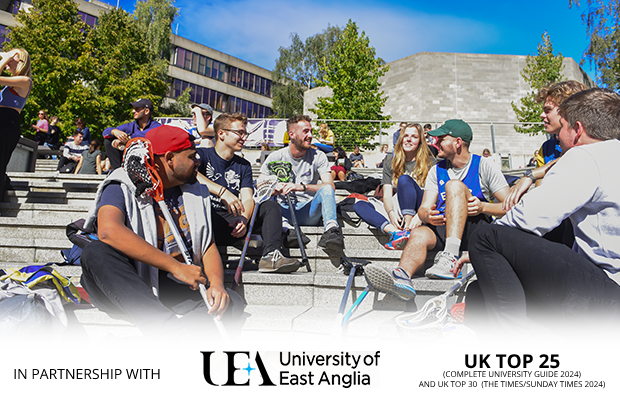How much does BPS accreditation matter??
Hi I'm looking at a joint honours program doing psychology and french, but this course only seems to be available at Lancaster and St. Andrews universities - I prefer St. Andrews as a university but the course at St. Andrews doesn't have BPS accreditation will this be a problem?? Im not particularly planning on becoming a psychologist but I don't want to rule that option out. Thank you
Original post by abihtaylor
Hi I'm looking at a joint honours program doing psychology and french, but this course only seems to be available at Lancaster and St. Andrews universities - I prefer St. Andrews as a university but the course at St. Andrews doesn't have BPS accreditation will this be a problem?? Im not particularly planning on becoming a psychologist but I don't want to rule that option out. Thank you
It only matters if you want to become a psychologist - and even then, it is not necessary to do an accredited undergraduate degree. You can do an accredited conversion course (http://www.bps.org.uk/bpslegacy/ac?frmAction=results&CourseType=CONV&Search_Type=NC). If you like St Andrews then go there, it won't prevent you from becoming a psychologist in the future if you decide that's what you want.
What is said above is correct, but it's unlikely you'll have student funding for the conversion course (or the funding may be more limited)
Firstly, you don't really want to go through all the expense of paying for a conversion course and having to relearn lots of things you already know. I wouldn't take this risk, especially since trying to become a professional psychologist is hard enough, you will be wasting a year doing a conversion course, which could be spent on doing a relevant masters degree. As a side note- to be a research psychologist you don't need BPS accreditation and you can do a research masters in psychology without it.
Secondly, if the course isn't accredited, it may suggest that it isn't really of very high quality. Lots of good dual honours psychology degrees are accredited since they teach at a good enough pace that you can reasonably cover it and also do the other subject, although sometimes its also because you do a greater percentage of psychology modules. Cambridge university cover all the essential psychology modules for accreditation with around 1.5 years of work (leaving the other half of the degree open to a number of optional modules).
That being said, because most psychology graduates don't enter the field when they leave, both my above points don't really have much weight. The chances are knowing a second language will be quite a useful skill, and doing a year abroad will be a very fun experience.
Secondly, if the course isn't accredited, it may suggest that it isn't really of very high quality. Lots of good dual honours psychology degrees are accredited since they teach at a good enough pace that you can reasonably cover it and also do the other subject, although sometimes its also because you do a greater percentage of psychology modules. Cambridge university cover all the essential psychology modules for accreditation with around 1.5 years of work (leaving the other half of the degree open to a number of optional modules).
That being said, because most psychology graduates don't enter the field when they leave, both my above points don't really have much weight. The chances are knowing a second language will be quite a useful skill, and doing a year abroad will be a very fun experience.
(edited 7 years ago)
Hi,
Accreditation is how they view your achievements (is it high quality). If you want to maximise your options in this field, I would say don't risk it, as accredited courses confers eligibility for the GBC (a requirement for Chartered Status). Later if you decide that you do want to work in this field and your course was not accredited, then you will need to do a conversion course (which would be wasting your time, as it would be what you already know). But if you are sure that you differently don't want to do a career in psychology, it doesn't matter.
Accreditation is how they view your achievements (is it high quality). If you want to maximise your options in this field, I would say don't risk it, as accredited courses confers eligibility for the GBC (a requirement for Chartered Status). Later if you decide that you do want to work in this field and your course was not accredited, then you will need to do a conversion course (which would be wasting your time, as it would be what you already know). But if you are sure that you differently don't want to do a career in psychology, it doesn't matter.
Quick Reply
Related discussions
- BA or BSc Psychology
- Cardiff metropolitan or university of south wales
- I need help deciding on a course
- English/Psychology undergraduate degrees
- Becoming a Clinical Psychologist
- MSc Psychology
- Accredited Psychology issues
- What degree I should do
- Doing a bachelor's in psychology in another country then doing a masters in the UK?
- Msc Clinical Psychology in University of Sussex/ Uni of Exeter or Royal Holloway?
- Getting into the field of psychology
- MSc Psychological Science academic standing
- BPS unaccredited undergrad degree
- Master's application with a non-accredited undergrad degree in Psych
- Are there any marketing degrees which are not along side a management degree
- Online degree in Psychology with BPS
- BPS Accredition with non-UK Psychology Masters
- Psychology with counselling at Kingston
- Hello, has anybody studied the an online psychology masters in Uk
- International degree and BPS Accreditation
Latest
Trending
Last reply 4 days ago
Wolverhampton MSc psychology mental health and well-being (online)Psychology
128
Trending
Last reply 4 days ago
Wolverhampton MSc psychology mental health and well-being (online)Psychology
128




